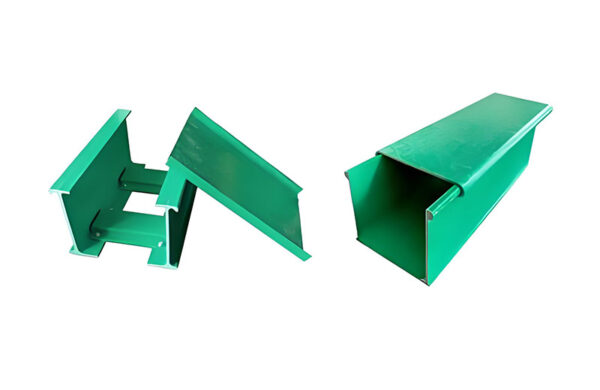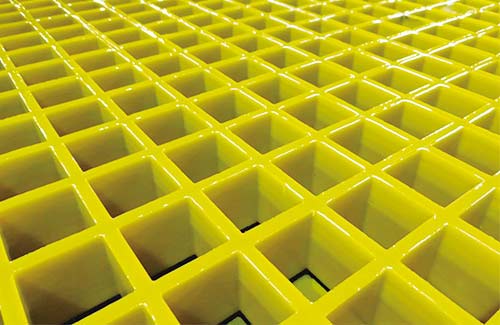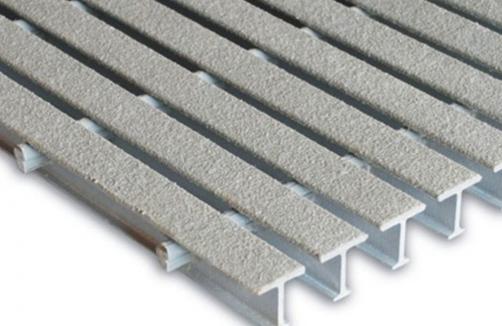FRP Grating in the Chemical Industry: The Ultimate Guide for Durability and Safety
The chemical industry is a highly demanding sector where equipment and infrastructure must withstand harsh conditions, including corrosion, chemical exposure, and heavy loads. Traditional materials like steel and concrete often fall short in meeting these challenges. Fiber Reinforced Polymer (FRP) grating has emerged as a superior alternative, offering exceptional durability and safety. But what exactly makes FRP grating the ultimate choice for chemical applications?
What Are the Key Challenges in the Chemical Industry?

Chemical plants face several unique challenges when selecting materials for their infrastructure. These include:
- Resistencia a la corrosión – Chemicals can rapidly degrade metal surfaces, leading to leaks, structural failures, and costly maintenance.
- Chemical Compatibility – Materials must resist exposure to acids, alkalis, and solvents without degrading.
- Weight and Load Capacity – Heavy equipment and foot traffic require platforms that can bear significant weight without bending or cracking.
- Safety Standards – Non-slip surfaces and fire resistance are critical to prevent accidents and ensure worker safety.
FRP grating addresses all these challenges while offering additional benefits like low maintenance and long service life.
How Does FRP Grating Enhance Durability?
FRP grating is composed of a polymer matrix reinforced with fiberglass. This combination creates a material that is both lightweight and incredibly strong. Here’s why it excels in chemical environments:
- Resistencia química – FRP does not rust or corrode, making it ideal for exposure to corrosive substances.
- Elevada relación resistencia/peso – It can withstand heavy loads without excessive weight, reducing structural stress on supports.
- UV and Thermal Stability – FRP retains its properties even under extreme temperatures or UV exposure.
These features ensure that FRP grating remains intact for decades, reducing replacement costs and downtime.
Safety Considerations in Chemical Plants
Safety is paramount in chemical facilities, and FRP grating offers several advantages:
- Superficies antideslizantes – Textured FRP prevents slips and falls, even when wet or exposed to chemicals.
- Resistencia al fuego – FRP has a high melting point and does not support combustion, enhancing fire safety.
- Aislamiento eléctrico – It is non-conductive, making it safe for areas with electrical hazards.
These safety features protect workers and equipment, ensuring compliance with industry regulations.
Why Choose FRP Grating Over Traditional Materials?
While steel and concrete are common choices, they come with significant drawbacks:
- Steel Corrodes – Requires frequent coatings and maintenance.
- Concrete Cracks – Prone to structural failures in harsh environments.
- Heavy Weight – Difficult to install and can strain supports.
FRP grating outperforms these materials in terms of longevity, cost-efficiency, and performance. Many chemical plants have switched to FRP grating and seen reduced maintenance costs and improved operational safety.
Real-World Applications of FRP Grating
FRP grating is used in various chemical industry applications, including:
- Plataformas – For storage, handling, and processing areas.
- Mixer and Reactor Supports – Withstanding heavy equipment and chemical exposure.
- Tank Walkways – Providing safe access to tanks and reactors.
These applications demonstrate FRP grating’s versatility and reliability in demanding environments.
Sharing Insights: Best Practices for FRP Installation
To maximize the benefits of FRP grating, consider these best practices:
- Proper Design – Ensure the grating is engineered for the specific load and chemical conditions.
- Secure Fastening – Use appropriate anchoring methods to prevent shifting.
- Inspecciones periódicas – Conduct periodic checks for signs of wear or damage.
Following these guidelines ensures long-term performance and safety.
Conclusión
FRP grating is the ultimate solution for durability and safety in the chemical industry. Its resistance to corrosion, chemical compatibility, and superior safety features make it a cost-effective and reliable choice. By choosing FRP grating, chemical plants can enhance operational efficiency, reduce maintenance costs, and ensure a safer working environment.
If you’re in the chemical industry, consider switching to FRP grating—it’s an investment that pays dividends in longevity and safety.







